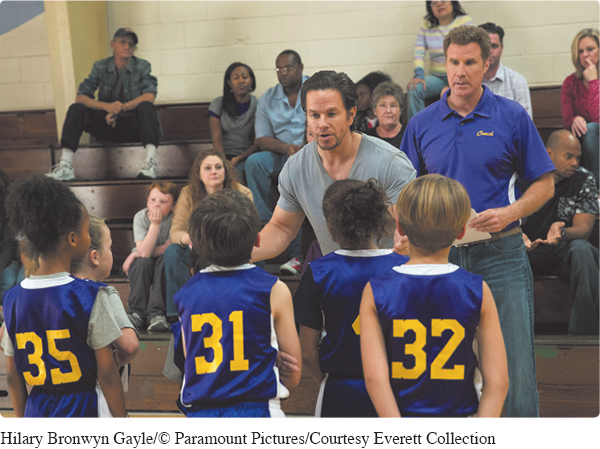Attributional Errors
Recall the most recent serious conflict you’ve had. Who was to blame? Who behaved cooperatively? When you said or did something negative, what caused your behavior?
If you’re like many people, your answers to these questions will be self-serving—designed to make you feel better about yourself. As we discuss in Chapter 2, this happens because human perception is subjective, not objective: people see what they want to see, not what is really true. This frequently leads to errors in your attributions: the explanations you create for why things are happening the way they are. Consequently, when conflicts erupt, you don’t judge yourself, others, or the situation objectively. Instead, you perceive these things subjectively, in ways that paint yourself in a positive light and make others look bad (Sillars, Roberts, Leonard, & Dun, 2000).
During a conflict, it is easy to blame other people for causing it and consider yourself faultless (Schutz, 1999). At the same time, the individuals with whom you’re fighting do the exact same thing—think they’re in the right and you’re in the wrong. Such one-sided blaming is an attributional error, because in most conflicts, one person isn’t the sole cause. Instead, conflicts are mutually created by two or more people, based on differing goals, opinions, or desires. Consider, for example, what happens during conflicts between spouses (Schutz, 1999). Most marital conflicts stem from differing opinions regarding money, housework, sex, or child care. Yet spouses don’t attribute mutual blame for these conflicts (“We created this dispute because we disagree on this issue”). Instead, they typically blame each other for causing the conflict. What’s more, they even blame each other for their own negative remarks made during the fight. Thus, when terrible things are said during the heat of battle, participants rarely think, “I said that horrible thing because I was angry and out of control.” Instead, they typically think, “You provoked me into saying it!” Spouses also consistently attribute their own communication to “good intentions” and describe their partner’s communication as “irrational” and “inconsistent.”
Like many comedies, Daddy’s Home builds its conflicts, resolutions, and laughs around attributional errors, with characters misunderstanding one another, situations, and intentions. Such scenarios—though entertaining—could be greatly helped if the characters engaged in perception-checking immediately instead of letting conflicts fester.

Hilary Bronwyn Gayle/© Paramount Pictures/Courtesy Everett Collection
Page 208
Table 8.2: TABLE 8.2 TIPS FOR MANAGING CONFLICT ONLINE
| Nearly two-thirds of college students (61.2%) use mediated channels to engage in conflicts, most commonly via text messaging (Frisby & Westerman, 2010). While managing conflicts offline reduces attributional errors and boosts empathy, that isn’t always possible or desirable. When you must deal with a conflict online, try these suggestions (Munro, 2002): |

WAIT AND REREAD. When you receive a message that provokes you, don’t respond right away. Instead, take a break and then reread it. This gives you a chance to reassess it and reply when you are calmer. |
ASSUME THE BEST AND WATCH OUT FOR THE WORST. Presume that the sender meant well but didn’t express him- or herself competently. Remember all the challenges of online communication, such as online disinhibition and empathy deficits. At the same time, realize that some people enjoy conflict. Firing back a nasty message may be what the person wants. 
|

SEEK OUTSIDE COUNSEL. Before responding, discuss the situation (ideally, face-to-face) with someone whose opinion you trust. Having an additional viewpoint will enhance your ability to perspective-take and will help you make a wise communication choice. |
WEIGH YOUR OPTIONS CAREFULLY. Choose cautiously between engaging or avoiding the confict. Consider the consequences associated with each option, and which is most likely to net you the long-term outcomes you desire. 
|

COMMUNICATE COMPETENTLY. Use “I” language, incorporate appropriate emoticons, express empathy and perspective-taking, encourage the other person to share relevant thoughts and feelings, and make clear your willingness to collaborate. Importantly, start and end your message with positive statements that support rather than attack the other person. |
Page 209
Of course, such attributional errors aren’t limited to romantic partners. Everyone makes attributional errors during disagreements, which in turn prevent participants from using collaborative approaches. For example, people typically perceive those they are in conflict with as uncooperative and themselves as cooperative (Sillars et al., 2000). This comparison discourages collaboration. Moreover, people tend to attribute conflicts to long-term differences that can’t be overcome (“You’ve never understood me, so why bother even talking about it?”).
To improve your conflict-management skills—and get the best possible outcomes from conflicts—practice analyzing the attributions you’re making during disputes and adjusting them to compensate for any potential errors. This will influence your approach to conflict and how you communicate (and is a form of perception-checking). Get into the habit of asking yourself three questions:
Is my partner really being uncooperative, or am I just imagining it?
Is my partner really the only one to blame, or have I also done something to cause the conflict?
Is this conflict really due to ongoing differences between us, or is it due to temporary factors, such as stress or fatigue?





